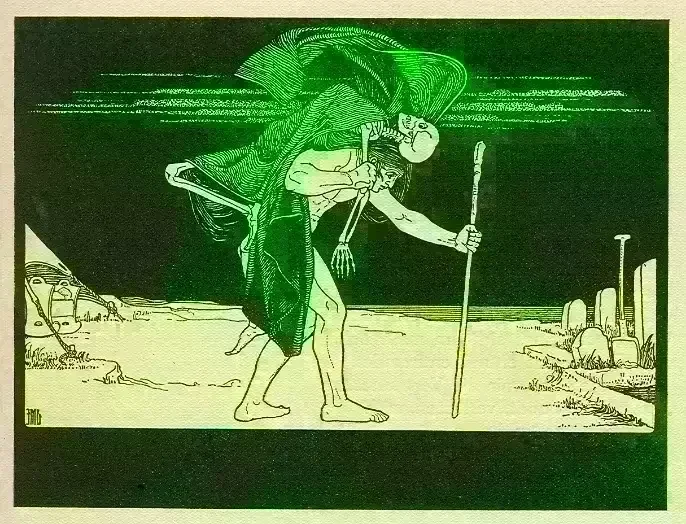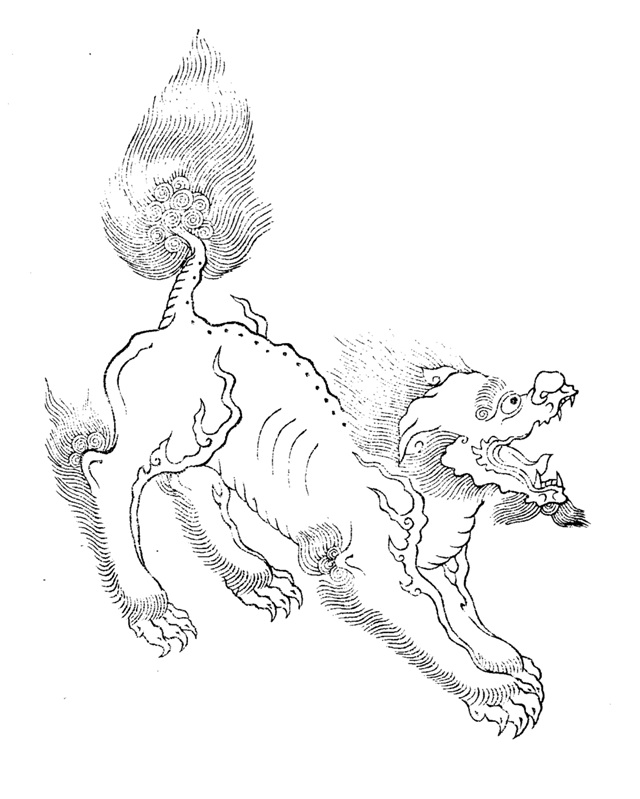Dybbuk

The dybbuk (/ˈdɪbək/; Yiddish: דיבוק, from Hebrew דָּבַק dāḇaq meaning 'adhere' or 'cling') is a malevolent possessing entity in Jewish mythology. It's believed to be the displaced soul of a deceased person that invades a living host's body. According to tradition, a dybbuk typically departs once it achieves its purpose, sometimes after formal exorcism.
This concept first appeared in writings during the 16th century, though mainstream scholarship largely overlooked it until S. An-sky's influential 1920 play The Dybbuk brought it to wider literary attention. Earlier possession accounts, such as those by Josephus, described demonic rather than ghostly possession, often promoting religious orthodoxy as protection.
Michał Waszyński's 1937 film adaptation of An-sky's play is now considered a masterpiece of Yiddish cinema. In modern times, Rabbi Yoel Teitelbaum (the Satmar rebbe, 1887–1979) is said to have recommended psychiatric consultation for someone believed to be possessed. Traditionally, dybbuks were predominantly male spirits.
According to Hayyim Vital, women couldn't become dybbuks because their souls didn't participate in gilgul (reincarnation). These spirits were frequently depicted possessing women before their weddings, often entering through the vagina, as portrayed in An-sky's play. However, male possession was also documented.
In psychological literature, dybbuk possession has been characterized as a hysterical syndrome.


